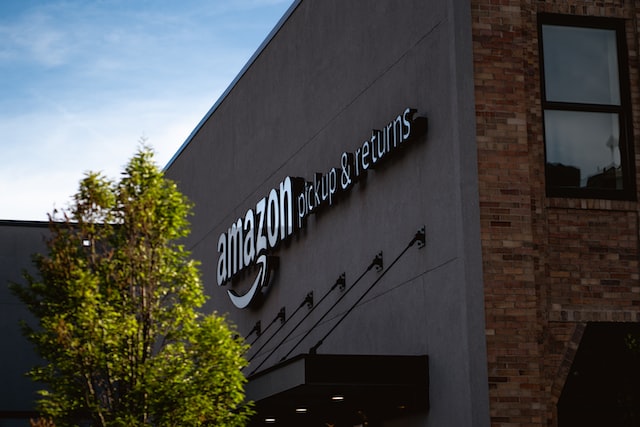Amazon Reportedly Struggles with New Alexa Development

Amazon, a pioneer in the smart home industry with its Alexa voice assistant, is reportedly facing significant delays with its next-generation Alexa development. This news comes as a surprise, considering Amazon’s long-standing reputation for rapid innovation and market leadership in the smart assistant space. This article examines the reasons behind the reported delays, the potential impact on Amazon and its competitors, and the future of voice assistant technology.
The Current State of Alexa
Amazon introduced Alexa in 2014, quickly establishing itself as a dominant player in the smart home market. Alexa’s integration into various devices, from the Echo smart speakers to smart home gadgets, has made it a household name. The voice assistant has continually evolved, incorporating new features and skills. As a result, it also improved artificial intelligence to enhance the user experience.
However, the rapid pace of technological advancements and increasing competition from other tech giants have put pressure on Amazon to deliver a next-generation Alexa that can stay ahead of the curve. According to recent reports, the development of this new Alexa version has encountered significant hurdles, leading to delays.
Reasons Behind the Delays
Several factors contribute to Amazon’s struggles with the new Alexa development:
- Technical Challenges: Developing a next-generation voice assistant involves significant technical challenges. Amazon aims to enhance Alexa’s natural language processing, contextual understanding, and ability to handle complex interactions. These improvements require advanced AI and machine learning capabilities. Which are complex and time-consuming to develop and refine.
- Integration Issues: The new Alexa is expected to integrate more seamlessly with a wider range of devices and services. Achieving this level of integration requires extensive testing and collaboration with various hardware and software partners. This adds to the complexity and duration of the development process.
- Increased Competition: Companies like Google and Apple have made substantial advancements with their own voice assistants, Google Assistant and Siri. Amazon faces the challenge of not only matching these improvements but also introducing unique features that set Alexa apart. This competitive pressure can slow down the development process as Amazon strives for innovation.
- Resource Allocation: Amazon is a vast organization with numerous ongoing projects and initiatives. Balancing resources across various teams and projects can be challenging, potentially leading to delays in specific areas such as the new Alexa development.
Potential Impact on Amazon
The reported delays in developing the next-generation Alexa could have several implications for Amazon:
- Market Position: Amazon risks losing its competitive edge in the voice assistant market. As competitors continue to enhance their offerings, consumers might gravitate towards alternatives if Alexa’s improvements lag behind.
- Consumer Trust: Delays can impact consumer trust and satisfaction. Loyal Alexa users might become frustrated if they perceive a lack of innovation or improvement, potentially leading to a decline in user engagement and satisfaction.
- Sales and Revenue: The success of Alexa is closely tied to the sales of Amazon’s Echo devices and other Alexa-enabled products. Delays in introducing new features and improvements could affect sales and revenue, particularly during key shopping seasons.
Future of Voice Assistant Technology
Despite the challenges, the future of voice assistant technology remains promising. Voice assistants like Alexa, Google Assistant, and Siri continue to evolve, becoming more integrated into daily life and offering increasingly sophisticated capabilities.
Amazon’s Path Forward
To address the current challenges at the present time and ensure the success of the next-generation Alexa, Amazon can take several strategic steps:
- Invest in AI and Machine Learning: Continued investment in AI and machine learning is crucial for overcoming technical challenges. By leveraging cutting-edge research and technology, Amazon can enhance Alexa’s capabilities and stay ahead of the competition.
- Strengthen Partnerships: Building strong partnerships with hardware and software developers can facilitate better integration and testing, ensuring a smoother development process and a more robust final product.
- Focus on User Feedback: Listening to user feedback and incorporating it into the development process can help Amazon address consumer needs and preferences, ultimately leading to a more user-friendly and innovative Alexa.
- Transparent Communication: Maintaining transparent communication with consumers about development progress and expected updates can help manage expectations and maintain trust.
Conclusion
The reported delays in developing the next-generation Alexa highlight the challenges Amazon faces in maintaining its leadership in the voice assistant market. While the technical and competitive hurdles are significant, Amazon’s track record of innovation and resourcefulness suggests that it can overcome these obstacles. By continuing to invest in advanced technology, strengthening partnerships, and focusing on user needs, Amazon can ensure that Alexa remains a vital and competitive player in the evolving smart home ecosystem. The future of voice assistant technology is bright, and with the right strategies, Amazon can continue to be at the forefront of this exciting field.




